Daily Dadish: Retro-Veggie Platformer Experiment
Da Dish of the Day
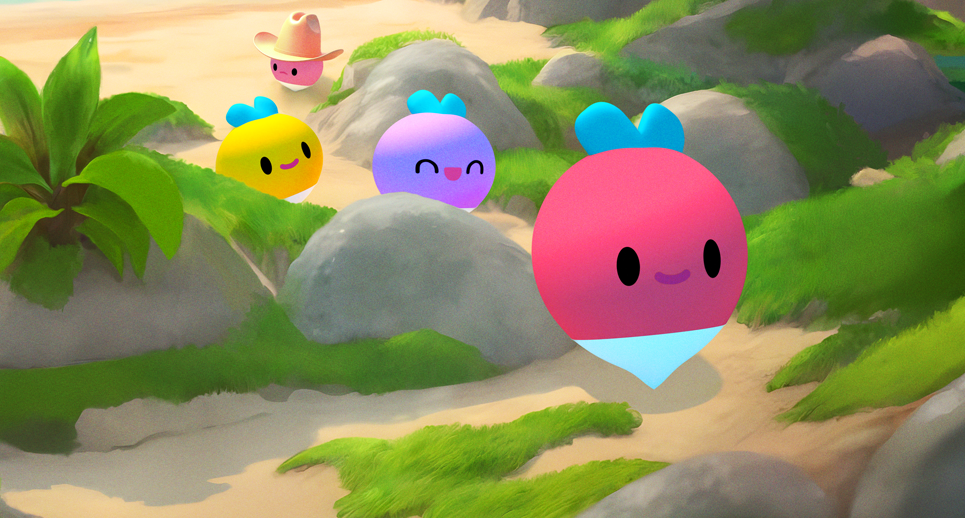
A quiet revolution is slowly building in the veggie plot, and it’s led by one redoubtable radish.
For those who have only paid brief attention to the Dadish series, it’s easy to write off the retro platforming trilogy as derivative, ‘mobile-y’, and a bit shallow. But dig a little deeper, and there are plenty of treasures to be found.
Dadishes One, Two, and Three
Thomas K. Young, the creative force behind the root vegetable, has been consistently releasing a set of cheap and cheerful games for the last five years, beginning with Fowlst, a vertical jumper with a quirky control mechanism.
After completing three games in that series, Thomas turned his hand to Dadish—a character who is both radish and, you guessed it, a dad. With one release each year, Dadish has given us level after level of tightly-designed, challenging platform action, each with a delightful conclusion. In total, 140 levels over 3 years is not a bad rate of return, but Young is not about to rest on his laurels.
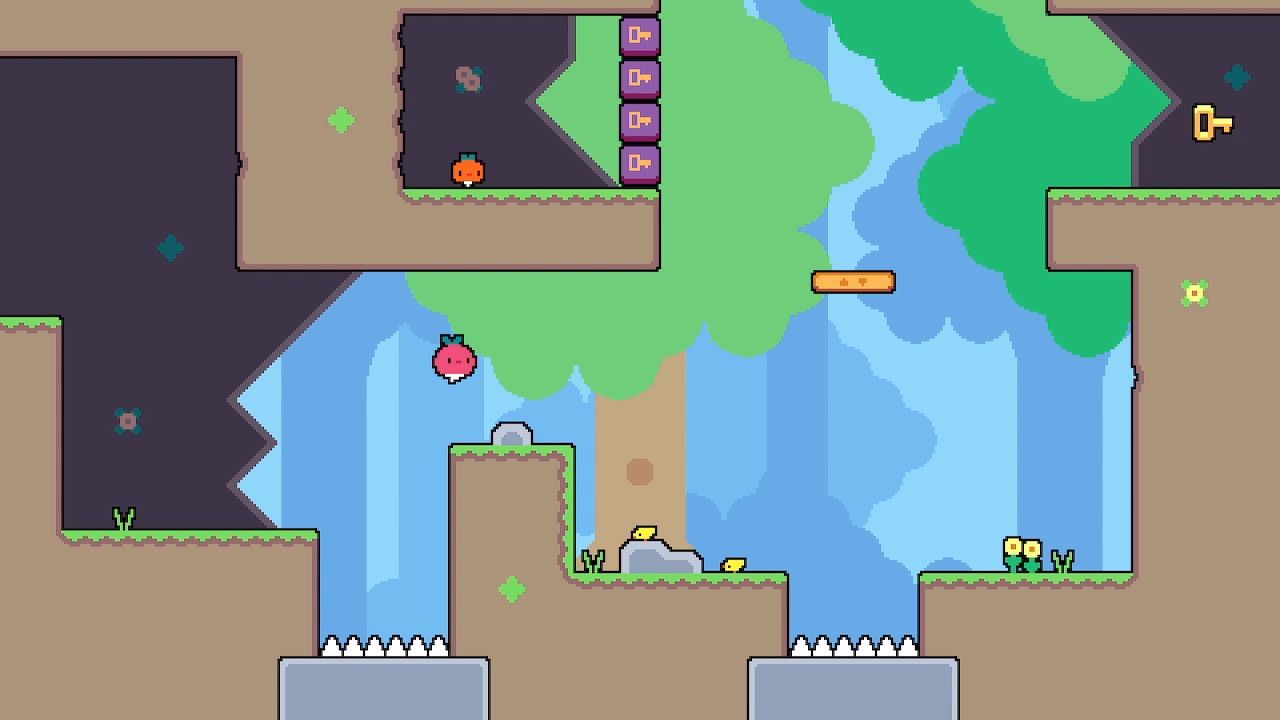
Before we explore the future of radishkind, let’s nail down what’s so great about the games released in this series so far. Dadish’s moveset is about as simple as can be: move and jump. The inclusion of double-jump, however, right from the get-go, means this platformer is far more open, forgiving, and downright enjoyable than many of its peers.
Although the games start off easy and, predictably, get more difficult as they progress, they steer clear of the kind of frustrating difficulty of Super Meat Boy, Celeste, and other massacore platformers. The double-jump’s contribution to this is no small effort; it takes away some of the enemy threat and generally results in platforming that doesn’t require pixel precision.
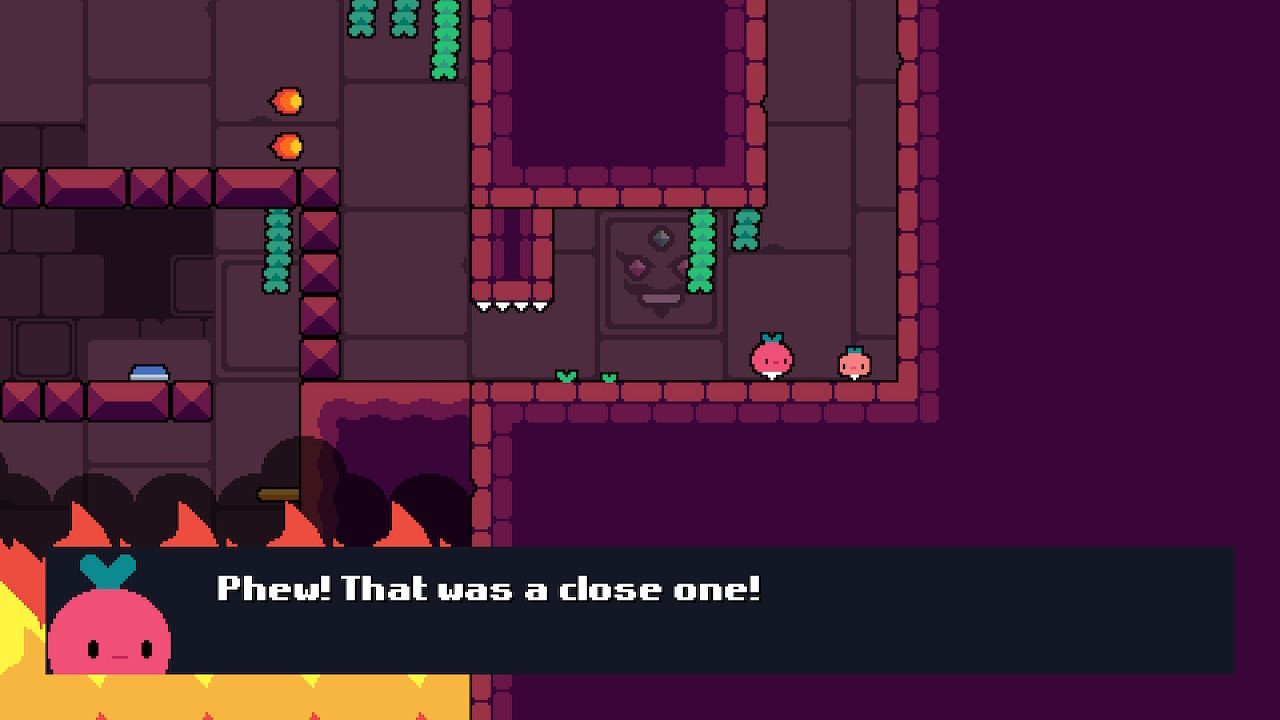
Dadish is a highly accessible game beyond this, in ways that reflect its mobile roots. Download size is small, the games often go on sale for a low, low price, and in-game menus and cut scenes all get out of the way, allowing you to enjoy the actual gameplay you’re looking for. It’s easy to pick up Dadish and quickly become immersed in its gameplay.
So far, so dependable—while Dadish may be smooth and polished, he’s not really testing your gaming tastebuds with anything radically new. The added spice that results in overall delectability is to be found at the end of each level, and it’s what gives the game a well-rounded context. For each of the 40 levels in the original, and 50 in each of its sequels, one of Dadish’s delightfully cheeky offspring is waiting. Reach the end and you’ll be treated to an adorable skit betwixt radish-y parent and child.
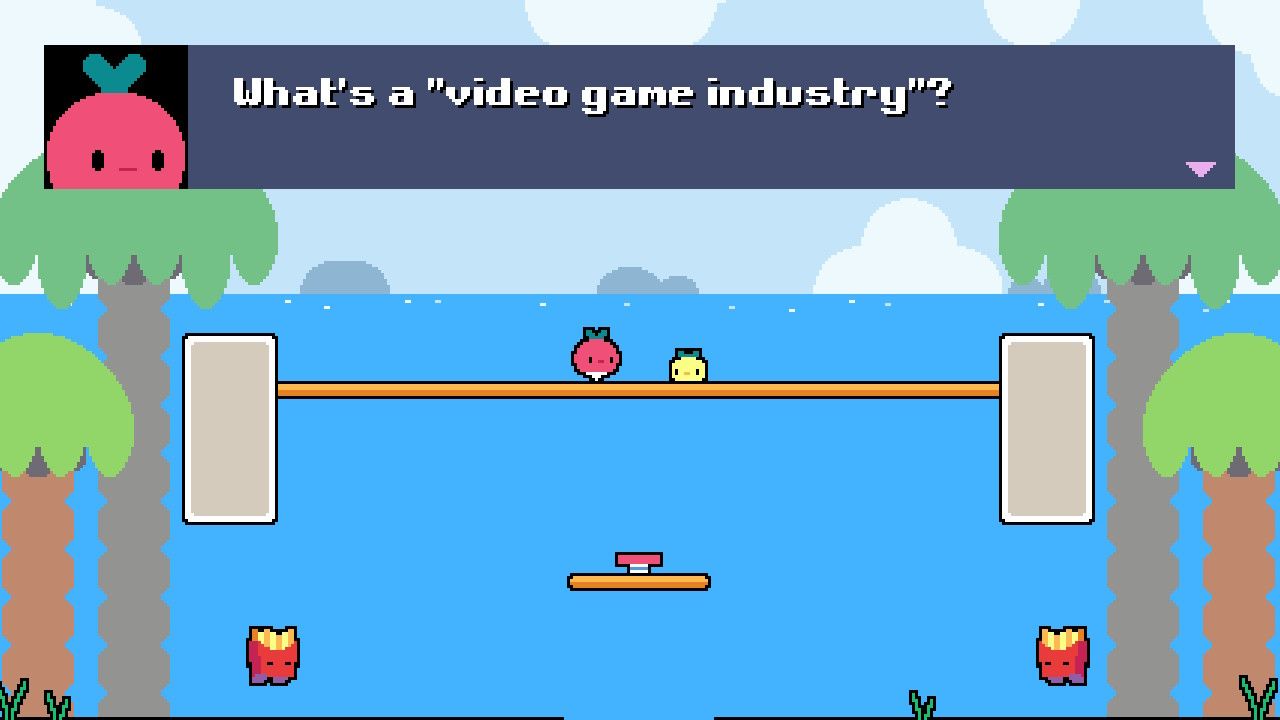
These mini-dialog scenes act as the slightest of rewards for all your hard work, but they help transform the Dadish games from yet-another-retro-platformer to a series with warmth, humour, and a strong identity.
It’s notoriously difficult to add humour to a game—attempts can be annoying, cringeworthy, or depend too much on in-jokes. Somehow, Young has mastered these vignettes of vegetable interplay, so they avoid these pitfalls. Maybe it’s the light-hearted ‘dad-jokiness’ of it all that’s easy to groan at, but difficult to dislike. But there’s also just the right amount of contemporary meme-ing with a smidgen of self-awareness and tongue-in-cheek social commentary that ensures these jokes land just right, for the vast majority of the time.
A Different Dadish Direction
With all that, you might expect Thomas Young to continue churning out another 50 levels annually, for the foreseeable future. No doubt, he certainly could do this, and a willing audience would continue to snap the games up. But Young has other plans and aims to stir the pot with a turn right out of the left field. While the game remains the same, Daily Dadish’s overall structure could hardly be more different. And literal, of course; Daily Dadish is, unsurprisingly, Dadish, but every 24 hours. In practice, every player will receive a new level—the same level for all—every day. One day to play a new level and, if you miss it, it’s gone.
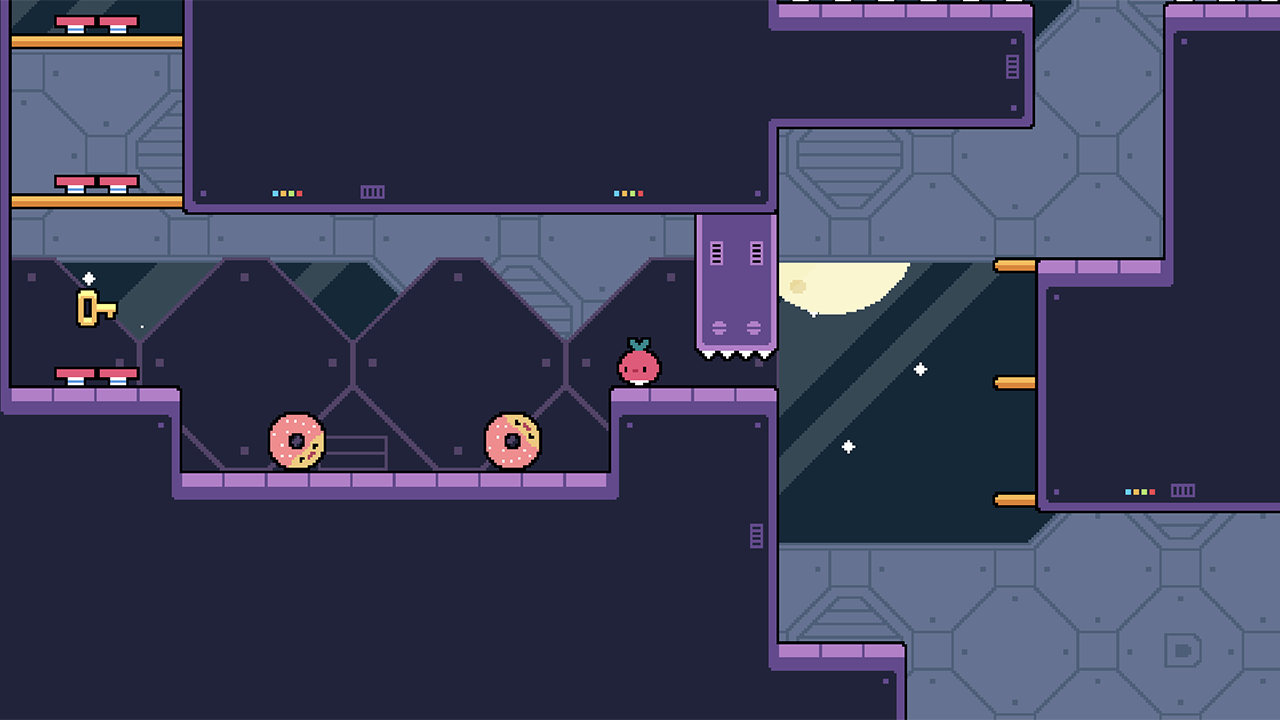
If you’re thinking this sounds suspiciously like an adaptation of Dadish for a Wordle audience, you’d be spot on. Young acknowledges the word-based puzzle as an influence, and the game clearly intends to capitalise on the concepts of shared experience and short-and-sweet, regular gameplay with frequent rewards. Gaming for the micro-dosing generation, if you will. Social media will clearly be a driving force behind the game’s success—or otherwise. It’s a safe bet that gameplay videos will be tweeted, and many players are bound to challenge themselves with the daunting feat of playing (let alone completing!) each and every level. Whether anyone will stream their daily two-minutes or so of gameplay is another matter.
On paper, Daily Dadish sounds like a winning formula; 365 levels (or more, as has been confusingly suggested) is certainly great value for money in the context of the 50-level predecessors, or relative to pretty much any other platformer out there. As mentioned, the game is a perfect pick-up-and-play experience, so limiting the action to just one level per day makes an awful lot of sense. And those end-of-level double-acts are bound to act as additional social-media fodder themselves. Thomas has been teasing some on his Twitter feed for several weeks now, slowly building momentum and anticipation.
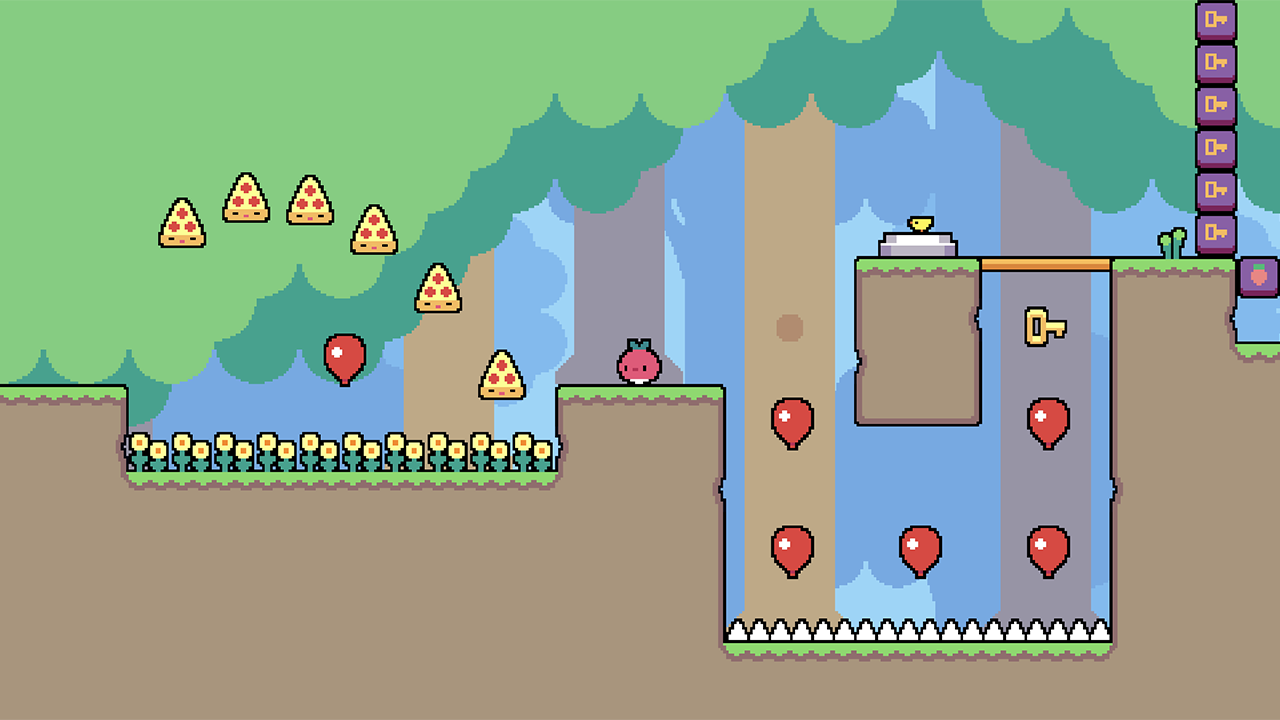
But questions remain, especially surrounding the overall model. Will gamers take kindly to the sense of obligation a daily schedule might bring? How will it feel missing out on a level, to have to wait a whole year for the chance to play it again? Will many want to take the risk to find out?
Maybe the most precious things are the most fragile, and if there’s always the promise of something new on the horizon, then it may just not matter. Most of the levels in the Dadish series are short and, although they’re not totally forgettable, are not really so involved as to be truly indispensable, which may aid the disposable nature of daily releases.
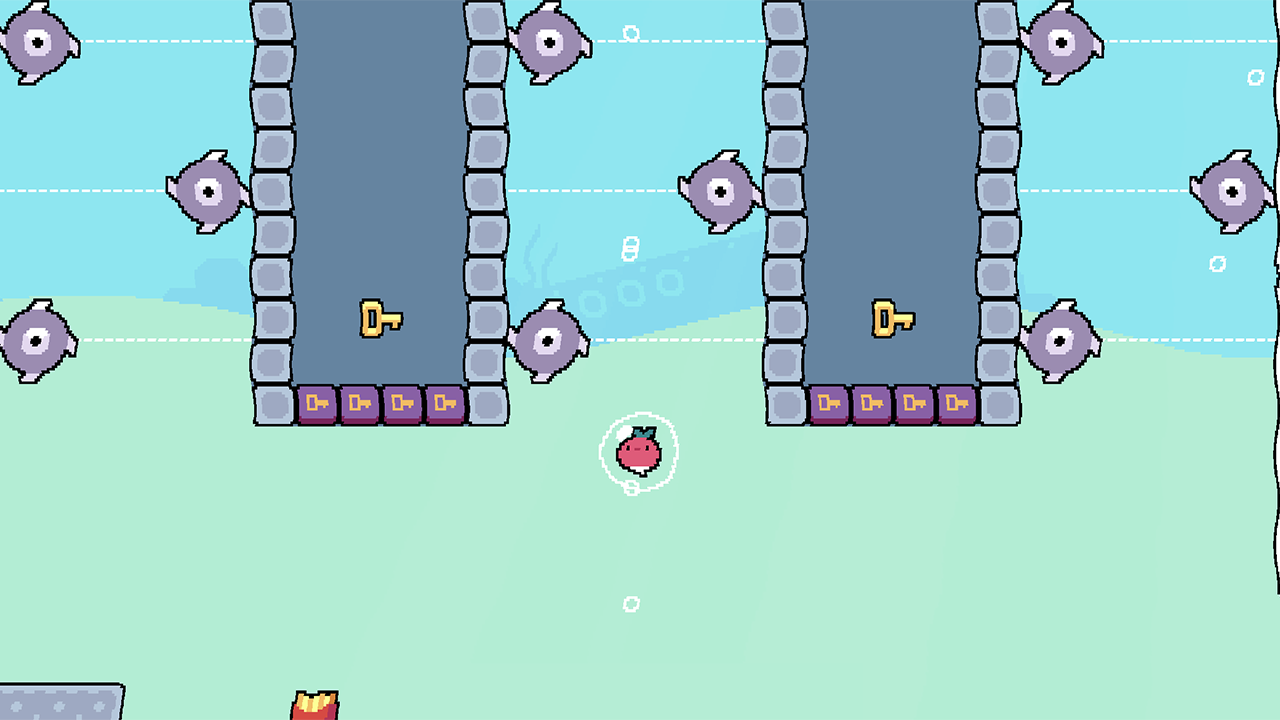
Revolutionary Radish?
The Dadish games are cheap and cheerful but, one hopes, have made a decent financial return for their creator, as well as allowing him to indulge in a project clearly borne out of a love for both classic platformers and his own family. Daily Dadish is a risk, quite a big one, but the potential rewards could be shared among the wider gaming community.
With Daily Dadish, we are getting a whole farmload of fantastic gameplay, drip-fed to guarantee a whole year’s entertainment. We’re also about to discover something new about what gamers want, especially what a shared experience can do for a single-player retro game. Dadish could be on the verge of birthing a whole new generation of gaming business models. At the very least, he’ll carry on saving his kids for another year, putting a much-needed smile on our faces until 2024.